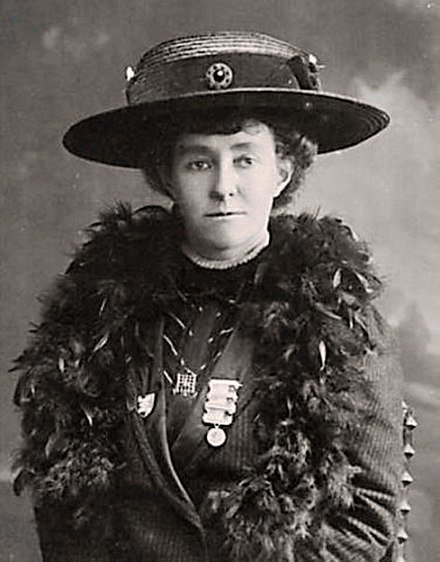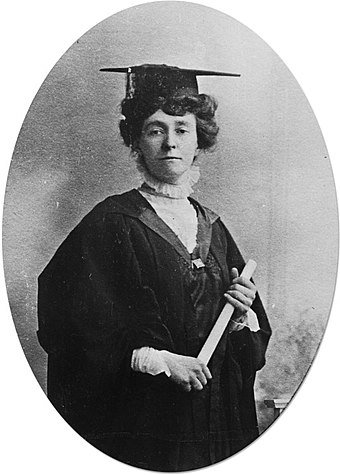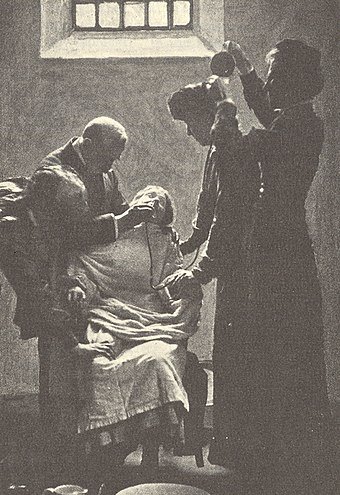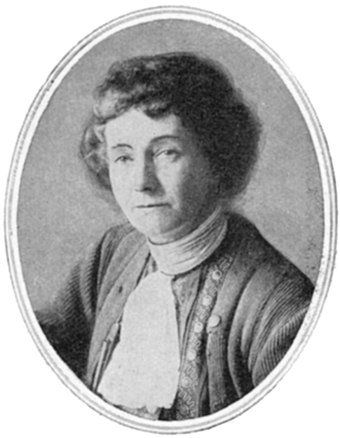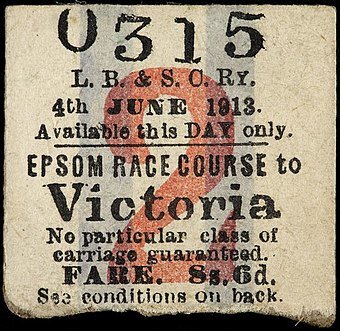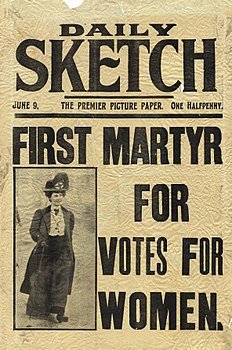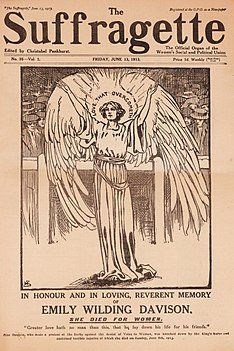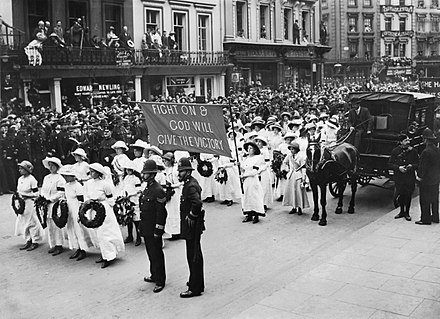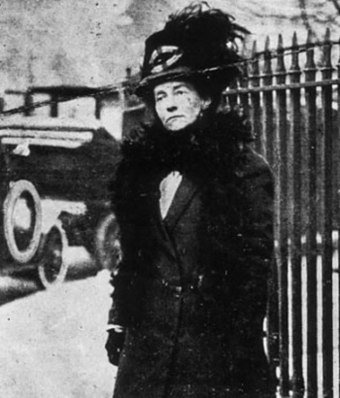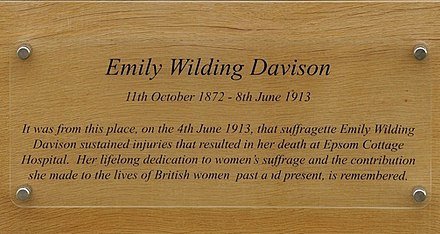British Heritage
Remember, Cherish, Learn.
beta
Emily Davison - Votes for Women
Contribution of Emily Davison to British Heritage.
Emily Wilding Davison, an English suffragette, played a pivotal role in the fight for women's voting rights in Britain during the early twentieth century. Her unwavering dedication and daring tactics brought attention to the suffrage movement, and her tragic death at the Epsom Derby in 1913 became a symbol of sacrifice and determination in the struggle for women's rights. Through her activism and ultimate sacrifice, Davison left a lasting legacy that continues to inspire and shape British heritage.
Born on October 11, 1872, in Greenwich, London, to Charles Davison and Margaret Caisley, Emily grew up in a middle-class family. She received her education at home until the age of 11, after which she attended a day school and later spent time studying in France. She eventually secured a bursary to study literature at Royal Holloway College in 1891. However, financial constraints led her to leave her studies prematurely.
Undeterred, Davison worked as a governess and continued her education through self-study. She later enrolled at St Hugh's College, Oxford, achieving first-class honors in English. Despite her academic achievements, she could not graduate from Oxford due to the institution's exclusionary policies towards women at the time.
In November 1906, Davison joined the Women's Social and Political Union (WSPU), a militant suffragette organization founded by Emmeline Pankhurst. She quickly emerged as a prominent figure in the movement due to her daring and confrontational actions. Her tactics included breaking windows, throwing stones, setting fire to postboxes, and hiding overnight in the Palace of Westminster to protest the exclusion of women from the census.
Davison's relentless dedication to the cause led to multiple arrests, hunger strikes, and force-feeding. Despite facing imprisonment and harsh treatment, she remained steadfast in her pursuit of women's voting rights. Her radical actions and fiery spirit earned her both praise and criticism, making her one of the most influential suffragettes of her time.
On June 4, 1913, tragedy struck during the Epsom Derby when Davison attempted to draw attention to the suffragette cause. In a bold and fateful move, she ran onto the racecourse and tried to attach a suffragette flag to King George V's horse, Anmer. Tragically, she was struck by the horse and suffered severe injuries. Two days later, on June 8, 1913, she passed away from a fractured skull, becoming a martyr for the suffragette movement.
Emily Davison's untimely death brought attention to the suffrage movement and sparked debates about the methods and sacrifices made by suffragettes. Her funeral procession in London saw thousands of supporters, solidifying her status as a symbol of courage and determination in the fight for women's rights.
Her actions, though controversial, played a significant role in bringing attention to the suffrage movement's cause. Her legacy has continued to inspire generations of women to fight for equal rights and political representation. The sacrifices made by suffragettes like Emily Davison paved the way for the eventual success of the women's suffrage movement in Britain.
Emily Davison's contributions have been commemorated in various ways. In 1990, a plaque was placed inside the cupboard where she hid during the 1911 census protest. In April 2013, a plaque was unveiled at Epsom racecourse to mark the centenary of her death. Royal Holloway College named its new library after her in January 2017. Furthermore, her name and picture are included on the plinth of the statue of Millicent Fawcett in Parliament Square, alongside other women's suffrage supporters.
Emily Davison's memory lives on not only in the annals of history but also in the ongoing struggle for equality and social justice in the United Kingdom. Her courage, determination, and ultimate sacrifice continue to inspire people worldwide to fight for a more inclusive and equitable society.
Early Life and Education:
Born on October 11, 1872, in Greenwich, London, to Charles Davison and Margaret Caisley, Emily grew up in a middle-class family. She received her education at home until the age of 11, after which she attended a day school and later spent time studying in France. She eventually secured a bursary to study literature at Royal Holloway College in 1891. However, financial constraints led her to leave her studies prematurely.
Undeterred, Davison worked as a governess and continued her education through self-study. She later enrolled at St Hugh's College, Oxford, achieving first-class honors in English. Despite her academic achievements, she could not graduate from Oxford due to the institution's exclusionary policies towards women at the time.
Involvement in the Suffrage Movement:
In November 1906, Davison joined the Women's Social and Political Union (WSPU), a militant suffragette organization founded by Emmeline Pankhurst. She quickly emerged as a prominent figure in the movement due to her daring and confrontational actions. Her tactics included breaking windows, throwing stones, setting fire to postboxes, and hiding overnight in the Palace of Westminster to protest the exclusion of women from the census.
Davison's relentless dedication to the cause led to multiple arrests, hunger strikes, and force-feeding. Despite facing imprisonment and harsh treatment, she remained steadfast in her pursuit of women's voting rights. Her radical actions and fiery spirit earned her both praise and criticism, making her one of the most influential suffragettes of her time.
The Tragic Incident at the Epsom Derby:
On June 4, 1913, tragedy struck during the Epsom Derby when Davison attempted to draw attention to the suffragette cause. In a bold and fateful move, she ran onto the racecourse and tried to attach a suffragette flag to King George V's horse, Anmer. Tragically, she was struck by the horse and suffered severe injuries. Two days later, on June 8, 1913, she passed away from a fractured skull, becoming a martyr for the suffragette movement.
Legacy and Impact:
Emily Davison's untimely death brought attention to the suffrage movement and sparked debates about the methods and sacrifices made by suffragettes. Her funeral procession in London saw thousands of supporters, solidifying her status as a symbol of courage and determination in the fight for women's rights.
Her actions, though controversial, played a significant role in bringing attention to the suffrage movement's cause. Her legacy has continued to inspire generations of women to fight for equal rights and political representation. The sacrifices made by suffragettes like Emily Davison paved the way for the eventual success of the women's suffrage movement in Britain.
Commemoration and Honors:
Emily Davison's contributions have been commemorated in various ways. In 1990, a plaque was placed inside the cupboard where she hid during the 1911 census protest. In April 2013, a plaque was unveiled at Epsom racecourse to mark the centenary of her death. Royal Holloway College named its new library after her in January 2017. Furthermore, her name and picture are included on the plinth of the statue of Millicent Fawcett in Parliament Square, alongside other women's suffrage supporters.
Emily Davison's memory lives on not only in the annals of history but also in the ongoing struggle for equality and social justice in the United Kingdom. Her courage, determination, and ultimate sacrifice continue to inspire people worldwide to fight for a more inclusive and equitable society.
- Emily Davisonen.wikipedia.org
